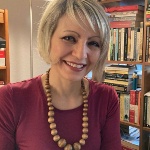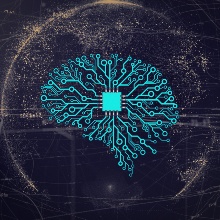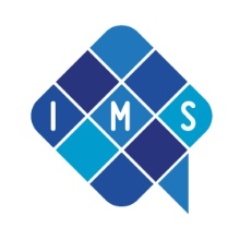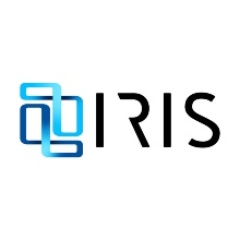↓ Scroll down for registration ↓
Keynote Addresses:
Dr. James Smithies, “Mysterium tremendum et fascinans: Rethinking the Technology of Literature & Culture”
Simon Ings, “As If: Fiction's Modelling of Minds – Playing with Dolls”
Research on ‘intelligent systems’ broadly impacts the everyday lives of citizens worldwide, from self-driving cars, facial recognition, and ‘intelligent’ robots, to algorithms that create personalized advertisements that influence consumer choice. The societal, political, cultural, and ethical impacts of advances in this field have become matters of concern – and have also shaped literary and cultural production. Especially in recent years, literary texts that explore various aspects of intelligent systems have been thriving: novels such as Ian McEwan’s Machines Like Me (2019), Kazuo Ishiguro’s Klara and the Sun (2021), and Mark Wheaton’s Emily Eternal (2019) have drawn public interest and have put a new focus on the ‘knowledge of literature’ in that these narratives not only reflect upon, but often also engage in, re-creating (and advancing) intelligent systems on the level of the storyworld. In effect, literary texts are both shaped by and actively shaping their cultural contexts of production and reception. With regard to the impact of various agents and environments on the design of a narrative – the text properties considered typical for a particular literary genre, as well as the robustness of specific genres due to their ability to adapt to changing requirements across different times and cultures – questions arise to what extent literature (or specific text types) can also be regarded as intelligent systems.
Needless to stress, literature and culture are not machines, and thus cannot be conceptualised as intelligent systems in the narrow sense of the term. Nor are they genuinely autonomous, in that they cannot sense their environments like ‘natural intelligent systems,’ such as bacteria and cells, are able to, since literary texts require one (or several) agent(s) to come into being. And yet, they share some key features with what has come to be known as intelligent systems: a) literary texts are highly dynamic and adaptive to changing historical and cultural contexts in their ability to productively interacting with complex environments; b) further, they are integrative, since they, in the words of Virginia Woolf, have “devoured so many forms” (1927, 224) and trends, and thereby drive the development of (new) genres; c) in addition, they build up a knowledge base, which helps to distinguish forms or developments of fiction, performance, or lyric within specific genres; and d) they include a certain degree of self-reflexivity, which comes to the fore, for instance, in metafictional elements or language poetry. Acutely aware about and responsive of other cultural, political, social systems, literary texts evolve and adapt to a wide variety of different environments, and have emerged as highly flexible and resilient within and across changing cultural ecologies.
Approaching literary texts as intelligent systems includes several challenges. First, it requires defining ‘intelligence’ and ‘systems’ in relation to literature and culture. Steven Pinker’s approach on ‘intelligence’ as “the ability to choose an action that best satisfies conflicting goals” (2019, 300) and the approach to literature as cultural ecology that views literature as “an ecological force within larger systems of cultural discourse” (Zapf 2016, 4) might serve as a starting points in that they integrate aspects of creativity and imagination, and highlight the ability of literary texts to (critically) engage in a wide variety of different discourses of their time (and beyond) and renew themselves within this process. These features, which are at the core of literary production and reception, are abilities frequently associated with ‘intelligent systems.’
Thus, part of the aim of this workshop is to identify, discuss, and also overcome these challenges to further explore to what extent intelligent systems might serve as a ‘travelling concept’ (Darbellay 2012, Bal 2002), which can be used to advance interdisciplinary research and exchange, and to foster the circulation of knowledge amongst researchers working in this field. Computer models, as they are developed in the Digital Humanities, for instance, might help capture trends and developments in literary production and/or in the reflective discourse of literary studies. However, how productive such data-oriented modelling approaches may be for our understanding of literature as an ‘intelligent system’ has not yet been explored. The workshop will offer a forum to discuss these, and further approaches, and to examine what literature knows about ‘intelligent systems.’
As an outgrowth of the Stuttgart Research Focus Interchange Forum for Reflecting on Intelligent Systems (SRF IRIS) (https://www.iris.uni-stuttgart.de/), the overarching goal of this workshop is to explore literature and culture both in relation to intelligent systems and as intelligent systems:
- Discussing various representations of intelligent systems in literary texts, we aim to assess the different ways in which literature reflects upon the ethical, cultural, political, and social impacts of recent developments in the field of intelligent or autonomous systems. This will help to explain the key function of literature in unveiling the potentials and limits of intelligent systems.
- Examining to what extent literature and culture can be regarded as intelligent systems themselves, i.e., as systems that are flexible, adaptive, integrative, and – to some extent – also self-learning, will enable us to gain a deeper understanding of the concept and assess its role as a travelling concept, which might aid in the circulation of knowledge across disciplines working in this field.
Hosted by the University of Stuttgart, Department of English Literatures & Cultures and the Interchange Forum for Reflecting on Intelligent Systems (IRIS) and organized by Prof. Dr. Sibylle Baumbach, Dr. Jessica Bundschuh (Department of English Literatures & Cultures) and Prof. Dr. Jonas Kuhn (Institute for Natural Language Processing).
Works Cited
Bal, Meike. Travelling Concepts in the Humanities: A Rough Guide. U of Toronto P, 2002.
Darbellay, Frédéric. “The Circulation of Knowledge as an Interdisciplinary Process: Travelling Concepts, Analogies
and Metaphors.” Issues in Integrative Studies, no. 30, 2012, pp. 1-18.
Pinker, Steven. Enlightenment Now: The Case for Reason, Science, Humanism, and Progress. Penguin, 2019.
Woolf, Virginia. “The Narrow Bridge of Art.” 1927. Virginia Woolf: Collected Essays, edited by Leonard Woolf, vol. 2,
Hogarth, Press, 1966, pp. 218-229.
Zapf, Hubert. Literature as Cultural Ecology: Sustainable Texts. Bloomsbury, 2016.
*Note: The times indicated in this schedule refer to CET (Central European Time).
9:30-9:45 Welcome
Keynote Address
9:45-10:45 James Smithies, “Mysterium tremendum et fascians: Rethinking the Technology of Literature & Culture,” Professor of Digital Humanities in the Department of Digital Humanities at King’s College London
Panel I: AI Systems For Analysis I
11:00-11:25 Jennifer Edmond & Erik Ketzan, “Ein bestimmtes Gesellschaftsetwas - Drawing Lessons for 21st Centure 'Privacy Protecting' AI Technology from 19th Century European Literature,” Trinity College Dublin
11:25-11:50 Jan Angermeier, “The Character-System of The Great Gatsby - an Intelligent System Visualized,” University of Stuttgart
11:50-12:15 Evelyn Gius, Irakli Khvedelidze, Mareike Schumacher & Inna Uglanova, “Automated annotation of indicators for potential conflicts as step towards automatic crisis detection in narratives,” Technical University of Darmstadt & Tbilisi State University
12:15-12:30 Discussion
12:30-14:00 Break
Panel II: AI Systems For Analysis II
14:00-14:25 Jonas Kuhn, “Intelligent systems in research on literature?,” University of Stuttgart
14:25-14:50 W. Victor H. Yarlott, “AI models for detecting motifs in a text collection,” Florida International University
14:50-15:15 Anna Moskvina, “Genre Identification with Graph Neural Networks,” University of Hildesheim
15:15-15:30 Discussion
15:30-16:00 Break
Panel III: AI In Contemporary Fiction
16:00-16:25 Tyne Sumner, “The Way the Portal Wrote: Dataveillance, Subjectivity, Language,” University of Melbourne
16:25-16:50 Curtis Runstedler, “Artificial Friends, Attentional Anxieties, and Intelligent Systems in Kazuo Ishiguro's Klara and the Sun,” University of Stuttgart
16:50-17:15 Elizabeth Callaway, “Bats and Bots: Ecosystems and Artifical Intelligence in David Mitchell's Ghostwritten,” University of Utah
17:15-17:30 Discussion
17:30-18:15 Wrap-Up Day 1
*Note: The times indicated in this schedule refer to CET (Central European Time).
Keynote Address
9:30-10:30 Simon Ings, “As If: Fiction's Modelling of Minds – Playing with Dolls.”
Panel I: Complex Systems And Creativity In Literature
10:45-11:10 Federico Pianzola, “Systems, literary theory, and the computational modelling of narrative,” University of Groningen
11:10-11:35 Dominik Hörauf, “Artificial Intelligence for the Assessment of Creativity: An Introduction to Semantic Text-based Creativity Analysis,” University of Stuttgart
11:35-12:00 Pascal Fischer, “Is it perfume from a dress / that makes me so disgress? - The categorical differences between human creativity and AI highlighted by literature,” University of Bamberg
12:00.12:15 Discussion
12:15-13:30 Break
Panel II: Creative AI
13:30-13:55 Kim Lacey, “Artificial Creativity: Computers Acting Creatively,” Saginaw Valley State University
13:55-14:20 Pablo Gervás, “Intelligent Systems and Literature: from Artificial Storytelling to Artificial Reading,” Complutense University of Madrid
14:20-14:45 Gunter Lösel, “Theatre Dialogues with Machines,” Zurich University of the Arts
14:45-15:00 Discussion
15:00-16:00 Final Discussion & Further Steps
Information according to Art. 13 DS-GVO
1. responsible person and data protection officer
Information about the data controller and the data protection officer can be found in the University's Privacy Policy.
2. description and categories of data
The form records your entered data in a database in a structured manner. In addition, the date and time are recorded in the database.
3. purpose
Implementation and confirmation of the registration, processing of the event.
4. legal basis
The legal basis is Art. 6 para. 1 lit. e DS-GVO in conjunction with Art. 6 para. 3 DS-GVO in conjunction with § 4 State Data Protection Act.
5. recipient
The recipients of the personal data transmitted by means of the form are the employees of the University Communications Department of the University of Stuttgart who are responsible for organizing the event.
6. duration of storage
After six months, the entry is automatically deleted from the database.
The copy in the form of a table is stored locally and deleted four weeks after the event has been completed.
7. consequences of not providing information, possibility of objection or elimination
Without mandatory data, the registration and thus the participation in the event cannot be carried out.
8. your rights
Information about your rights can be found in the University's Privacy Policy.
Workshop registration
Please register for the workshop (free of charge) by Wednesday, December 15th to receive the Zoom links.
Please note that we may contact you at the email address you provide, if necessary.
If you have any questions

Jessica Bundschuh
Dr.Academic Staff





